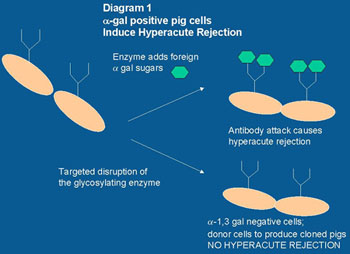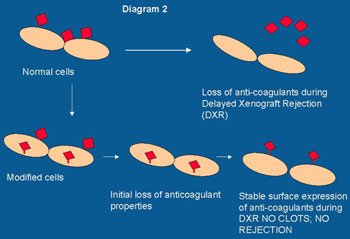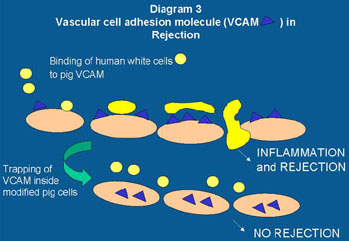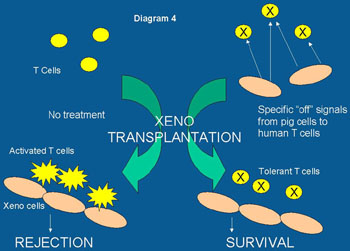 |  |
The problem remains that cross-species transplantation is dangerous and could transmit dormant virus which become active. Recently scientist found PERV in pigs that could potentially harm humans. Other risks include hyper acute rejection (HAR) but scientist had three ways to combat HAR. One reduces anti-bodies, two reducing antigen expressions in the donor cell, and three canceling additional activations. Scientist agreed option three would be best. Jonathan Allen, a virologist on FDA's advisory subcommittee, said "It may take decades for a xenozooposis like the AID's virus or Human T-cell Leukemia to spread and become detected."
After an organ has been transplanted it goes though the risk of delayed xenograft rejection (DXR) that may occur down the road. Studies by MRMC states that "Since 1906 there have been 55 unsuccessful xenotransplantaion attempts between animals and humans". These previous experiments has ended in the suffering and death of all its patients and donor animals.
 |  |